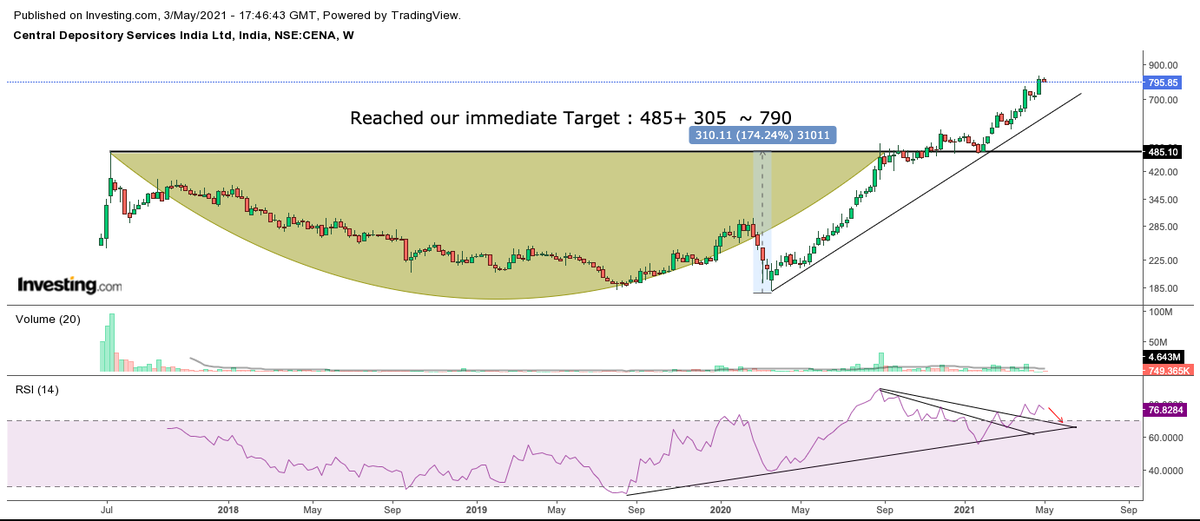#CDSL
Entering into most Bullish Territory
@Jitendra_stock
@Abhishekkar_
@drprashantmish6
@AmitabhJha3

More from Cdsl
#CDSL beautiful company with nice uptrending price chart.....45%ROI in 54 trading days since first post ....#TrendFollowing #Pyramiding #AveragingUp ... https://t.co/25hh9QKamu


#CDSL another holding from lower levels...now looks ready for further northward journey.... #TechnoFundaPick #ADB pic.twitter.com/A3cjRV94Ew
— Akaash (@thepnfway) February 19, 2021
CDSL
CMP:971.90
Lowest volume and a very tight day today.
Previously such consolidation was followed by a strong move of minimum 10% and continued to rally further.
Can be a sweet spot to enter today.
Investment wise solid stock for longterm
@Atulsingh_asan @nishkumar1977 https://t.co/auSRNis5yv

CMP:971.90
Lowest volume and a very tight day today.
Previously such consolidation was followed by a strong move of minimum 10% and continued to rally further.
Can be a sweet spot to enter today.
Investment wise solid stock for longterm
@Atulsingh_asan @nishkumar1977 https://t.co/auSRNis5yv

IEX
— TECHVESTOR (@AshrafZaman3) June 25, 2021
CMP: 377
Vert tight consolidation with lowest volumes since last 4 months. Explosive move expected next week.
Can be bought above 380.60 pic.twitter.com/lrnfLvBged
You May Also Like
✨📱 iOS 12.1 📱✨
🗓 Release date: October 30, 2018
📝 New Emojis: 158
https://t.co/bx8XjhiCiB

New in iOS 12.1: 🥰 Smiling Face With 3 Hearts https://t.co/6eajdvueip

New in iOS 12.1: 🥵 Hot Face https://t.co/jhTv1elltB

New in iOS 12.1: 🥶 Cold Face https://t.co/EIjyl6yZrF

New in iOS 12.1: 🥳 Partying Face https://t.co/p8FDNEQ3LJ

🗓 Release date: October 30, 2018
📝 New Emojis: 158
https://t.co/bx8XjhiCiB

New in iOS 12.1: 🥰 Smiling Face With 3 Hearts https://t.co/6eajdvueip

New in iOS 12.1: 🥵 Hot Face https://t.co/jhTv1elltB

New in iOS 12.1: 🥶 Cold Face https://t.co/EIjyl6yZrF

New in iOS 12.1: 🥳 Partying Face https://t.co/p8FDNEQ3LJ






























